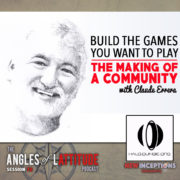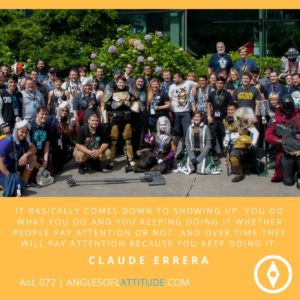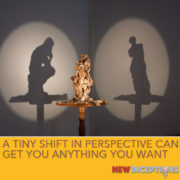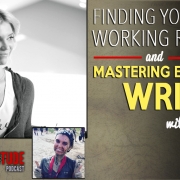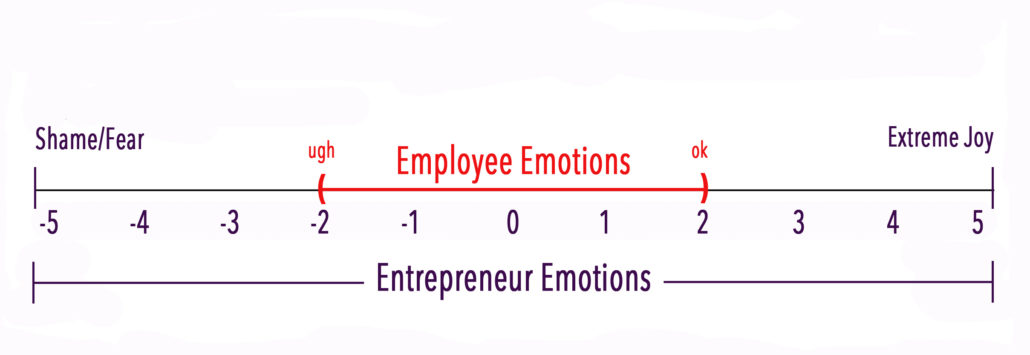Making It Start To Work by Identifying Your True Fans
In part of last week’s post, I mentioned that if we’re going to be involved in digital marketing, we need to be aware of who our Raving or True Fans are.
The question was asked, how do you find who those people are?
This is a great question. So good, in fact, that I’m going to make this post all about answering that question.
What Makes a True Fan?
So real quick, if you’re not familiar with the phrase “True Fan”, let’s fix that real quick.
A True Fan is basically someone that will go out of their way to be involved in your work.
They’re the ones that, if you’re speaking for example, will travel 150-200 miles to hear you talk.
They will open up and read your emails.
True Fans are those that tell others about you all the time.
And, they’re the ones who self identify themselves as fans of your work.
So, really, these folks are people that believe in what you’re doing and want to be a part of it in anyway they can.
How Does Someone Become a True Fan?
A person becomes a true fan of yours when they feel that they’re engaged in what you’re doing.
That word “engaged” is the key.
How do you build engagement? One person at a time.
If someone takes the time to comment on a blog post, or emails you, or does anything else to reach out to you, answer them. And I don’t mean answer them with a “Oh, thanks!” sort of response. I mean give them a paragraph or two that brings them in further.
A better response to a compliment instead of “Oh, thanks!” would be “Oh, hey <sender>! Thanks for reaching out. Yeah, that <whatever they’re complimenting on> is so important to me. I’m glad you found some value in it! What’s your thoughts on <insert related topic>?”
If they respond, great! Keep going down that path with them.
One thing that I’ve found which has helped me is by finding out how I can add more value to them.
I mean, they might not become a True Fan in the end (we can’t control that) but if they respond, then we might have better insights of helping your real True Fans.
Always seek to improve others lives by letting them have a part in your work. Whether it’s through your art, products, or other services, find out what they want – don’t guess if you can help it.
Identifying True Fans
Active True Fans
So, we’ve gone over what true fans are and how people can become one. But how do you identify them?
Well, for one, I think you should know that there are two types of true fans. The first group is a bit more active in following your work. For example, they always share, comment on, or like posts on social media. They always open your emails. If you attend conferences, they’ll definitely come and talk to you.
Usually these folks make it abundantly clear that they’re listening to you.
They’re the ones who you can count on and they’re relatively easy to identify.
Do you know a few folks like this? Make note of their names, their likes and dislikes, and their contact info. Heck if you’re just starting out, perhaps a Google spreadsheet might be useful!
Keep engaging with them and finding more and more ways to add value to these folks.
Passive True Fans
Not all true fans are outspoken as those that I would call active. There’s a more passive variety that you might only hear from time to time or not at all.
But, they’re still engaging with your stuff on another level. They might buy all your products, or they’re telling their friends about what you do.
Many times these same people don’t have the time to follow all of your posts on social media or read all of your emails. Perhaps they’re busy in their own world.
The thing is you have no idea that they’re out there because they don’t usually self identify.
So how do you find this group of fans?
The number one easiest way is to give them the opportunity to raise their hand and say they are a true fan.
Perhaps this might be a special landing page for a separate email list that will allow them to get special news as MVP’s. Sure, you might be getting your active true fans in the list as well, but it’s easier to communicate with them then as well!
Also, consider a special Facebook Group (like I have for the AoL Podcast here). Just make sure that whatever you create, that you don’t leave it on automation too long. I’ve seen some groups start well and then the leader disappears after setting it on auto-pilot with another group member.
I’m sure there’s other ideas, but these are the ones that I use.
Action Steps
The key takeaway that I want you to get this week is for you to start building engagement. Only then can you build products and give services that you know people want.
Here’s the strategy in short:
Reach out and add value.
Find out who engages back with you readily and regularly.
And offer them extra value to become True Fans (MVPs?).
Let me know below how you you’ve reached out to your true fans below!
P.S. I didn’t speak too much about Twitter. But you can use tools like friendorfollow.com to see who’s following you. Or, if you want more functionality, check out Commun.it.
(Note: If you decide to use Commun.it – do so while knowing that some of the functions in it might be somewhat annoying to certain individuals. While I was playing with it, I got on certain people’s radars in a way that wasn’t necessarily the best way!)
Then, send some messages to those who are fans of you (they’re only following you) or you’re following each other. Let them know about your MVP list or group.








